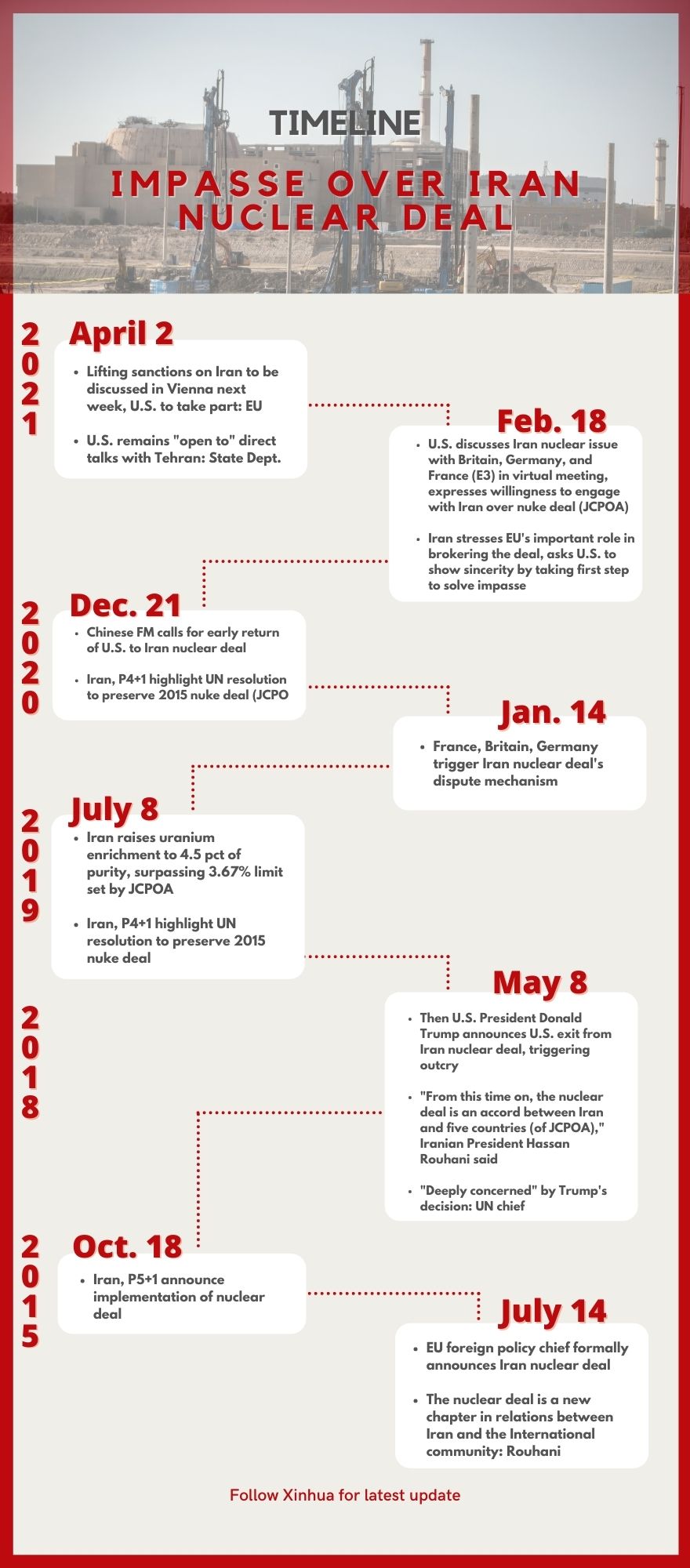
Check out the timeline of the impasse over Iran nuclear deal:
TEHRAN, April 3 (Xinhua) -- Parties to the Iran nuclear deal have agreed to convene in Vienna, Austria next week to discuss the possibility of resuming an agreement which has been stalled for years as the United States quit in 2018.
The deal, known as the Joint Comprehensive Plan of Action (JCPOA), was reached between Iran and the P5+1 (the five permanent members of the United Nations Security Council -- the United States, Britain, Russia, France, China, plus Germany) and the European Union (EU).
Here is a timeline of this landmark nuclear accord:
April 2, 2021
-- The EU said in a statement that representatives of China, France, Germany, Russia, Britain and Iran, known as the participants in the JCPOA, met virtually, and agreed to convene in Vienna, Austria in order to "clearly identify sanctions lifting and nuclear implementation measures."
Feb. 18, 2021
-- After a virtual meeting with Britain, Germany, and France, the United States said that it was ready to attend talks with Iran and other major countries to discuss the Iran nuclear issue.
-- Iran stressed the important role of the EU in brokering the nuclear deal, and also asked the United States to show its sincerity by taking the first step to solve the impasse.
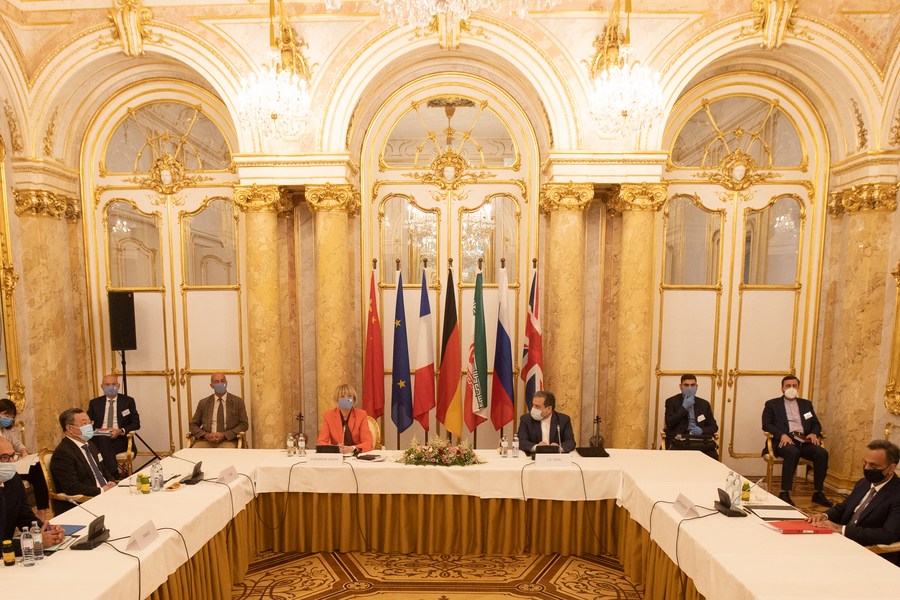
A meeting of the Joint Comprehensive Plan of Action (JCPOA) Joint Commission is held in Vienna, Austria, on Sept. 1, 2020. (JCOPA/Handout via Xinhua)
Dec. 21, 2020
-- Chinese State Councilor and Foreign Minister Wang Yi said that the United States should return unconditionally to the Iran nuclear deal as soon as possible, while lifting sanctions against Iran and third-party entities and individuals.
-- The foreign ministers of Iran and the P4+1 (Britain, France, Russia and China plus Germany) stressed the importance of implementing a United Nations resolution to preserve the JCPOA, according to Iran's official news agency.
Jan. 14, 2020
-- France, Britain and Germany announced that they have triggered the dispute mechanism set up in the nuclear deal with the hope to preserve it and bring Iran back into full compliance with its commitments.
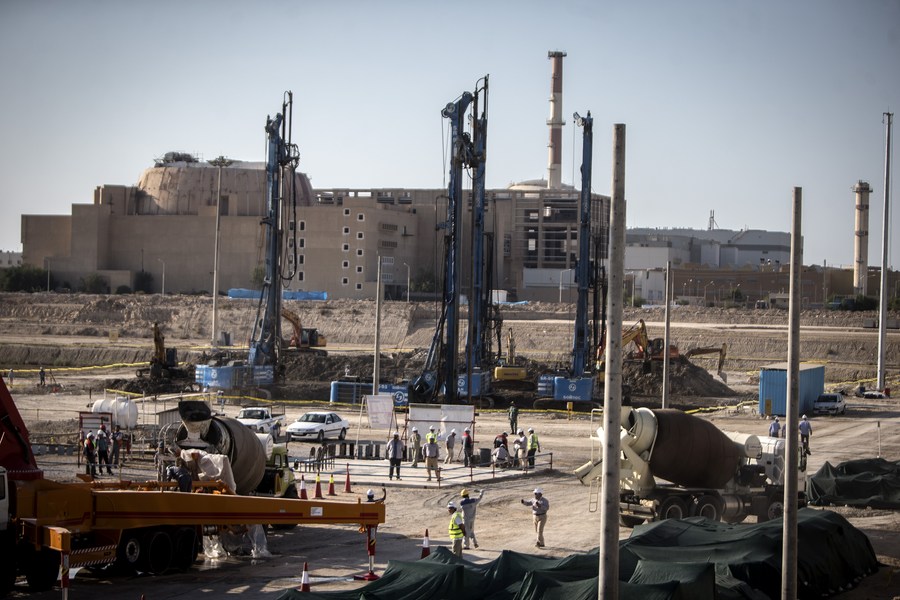
Laborers work at the construction site of the second phase of Iran's Bushehr Nuclear Power Plant in Bushehr, southern Iran, on Nov. 10, 2019. (Photo by Ahmad Halabisaz/Xinhua)
July 8, 2019
-- Iran nuclear agency spokesman said Iran has passed 3.67 percent Uranium enrichment limit outlined in nuclear deal.
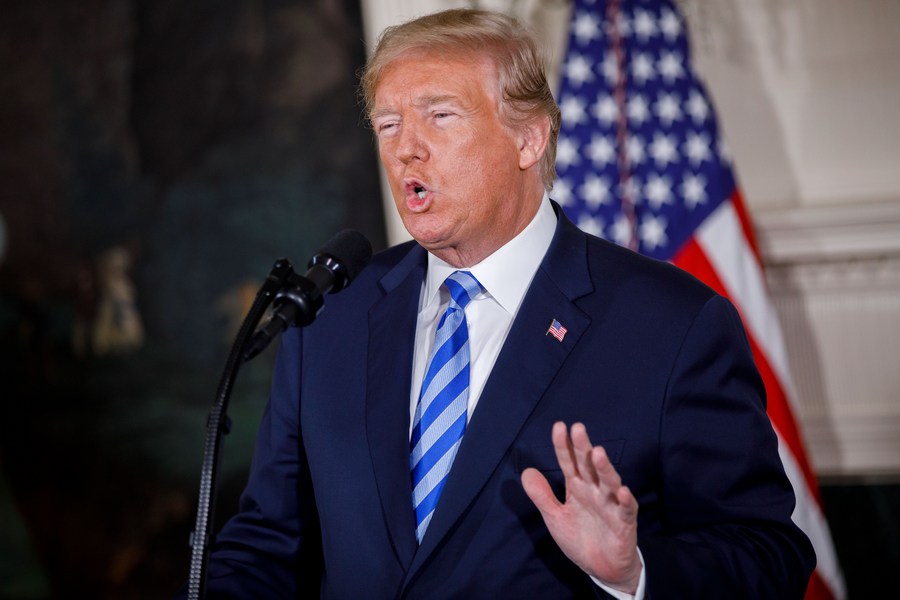
U.S. President Donald Trump delivers a speech at the White House in Washington D.C., the United States, on May 8, 2018. (Xinhua/Ting Shen)
May 8, 2018
-- Then U.S. President Donald Trump said in the White House that he will withdraw the United States from the Iran nuclear deal.
-- Iran's President Hassan Rouhani said that the Islamic republic will remain in the nuclear deal without the United States.
-- United Nations (UN) Secretary-General Antonio Guterres voiced "deep concern" over Trump's decision to pull America out of the deal.
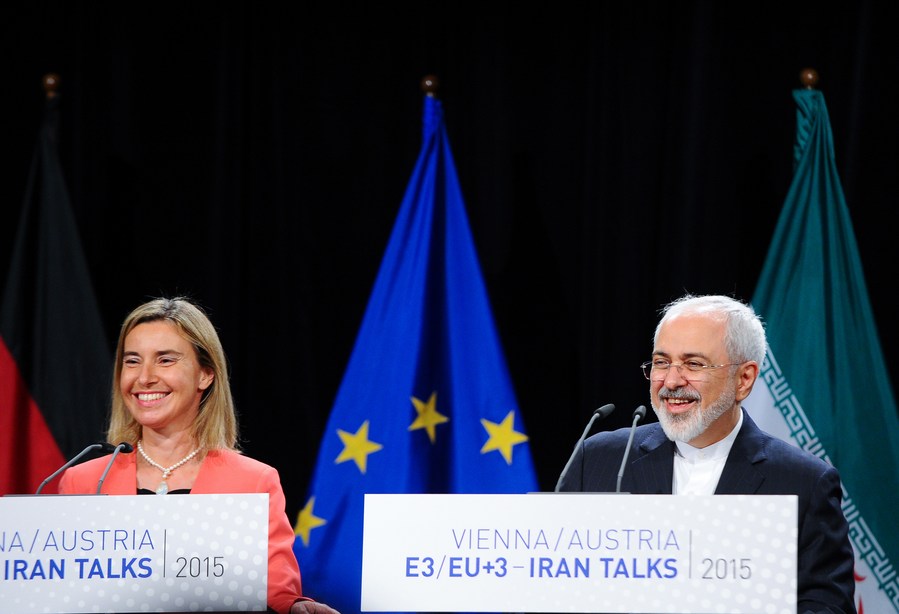
European Union (EU) foreign policy chief Federica Mogherini (L) and Iranian Foreign Minister Mohammad Javad Zarif attend a press conference of Iran nuclear talks in Vienna, Austria, on July 14, 2015. (Xinhua/Qian Yi)
July 14, 2015
-- Iran and the P5+1 have adopted an agreement on the Iranian nuclear issue, then EU foreign policy chief Federica Mogherini announced.
-- The nuclear deal between Iran and the world powers will open a new chapter in the relations between Iran and the international community, Iran's President Rouhani said.
-- Then UN Secretary-General Ban Ki-moon "warmly" welcomed "the historic agreement," saying that "this is testament to the value of dialogue." ■




